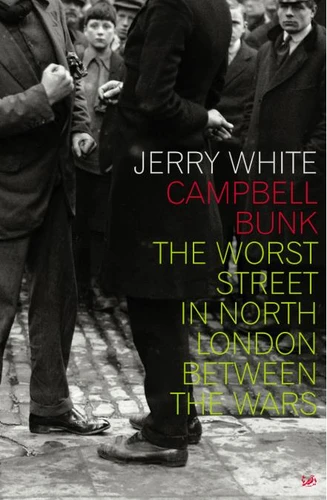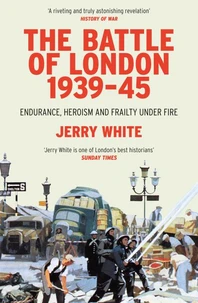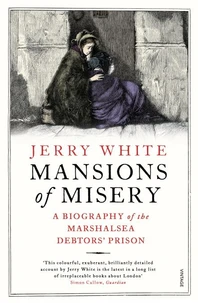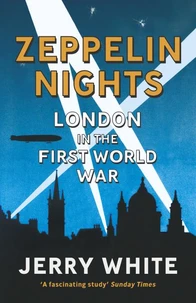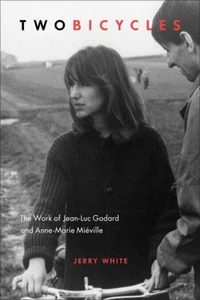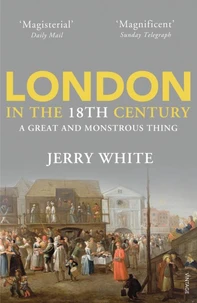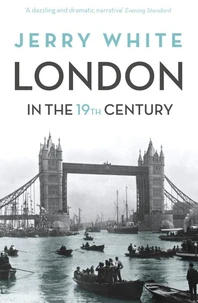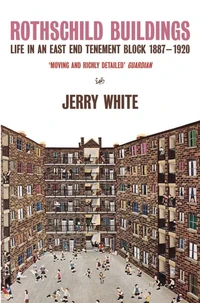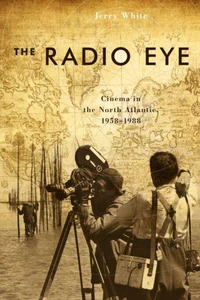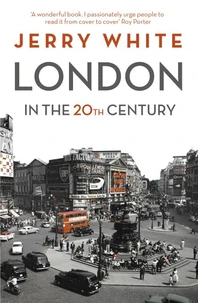Campbell Bunk. The Worst Street in North London Between the Wars
Par :Formats :
Disponible dans votre compte client Decitre ou Furet du Nord dès validation de votre commande. Le format ePub protégé est :
- Compatible avec une lecture sur My Vivlio (smartphone, tablette, ordinateur)
- Compatible avec une lecture sur liseuses Vivlio
- Pour les liseuses autres que Vivlio, vous devez utiliser le logiciel Adobe Digital Edition. Non compatible avec la lecture sur les liseuses Kindle, Remarkable et Sony
- Non compatible avec un achat hors France métropolitaine
 , qui est-ce ?
, qui est-ce ?Notre partenaire de plateforme de lecture numérique où vous retrouverez l'ensemble de vos ebooks gratuitement
Pour en savoir plus sur nos ebooks, consultez notre aide en ligne ici
- Nombre de pages352
- FormatePub
- ISBN978-1-4481-6221-5
- EAN9781448162215
- Date de parution31/01/2013
- Protection num.Adobe DRM
- Infos supplémentairesepub
- ÉditeurVintage Digital
Résumé
From the 1880s to the Second World War, Campbell Road, Finsbury Park (known as Campbell Bunk), had a notorious reputation for violence, for breeding thieves and prostitutes, and for an enthusiastic disregard for law and order. It was the object of reform by church, magistrates, local authorities, and social scientists, who left many traces of their attempts to improve what became known as 'the worst street in North London'.
Jerry White offers insight into the realities of life in a 'slum' community, showing how it changed over a 90-year period. Using extensive oral history to describe in detail the years between the wars, White reveals the complex tensions between the new world opening up and the street's traditional culture of economic individualism, crime, street theatre, and domestic violence.
Jerry White offers insight into the realities of life in a 'slum' community, showing how it changed over a 90-year period. Using extensive oral history to describe in detail the years between the wars, White reveals the complex tensions between the new world opening up and the street's traditional culture of economic individualism, crime, street theatre, and domestic violence.
From the 1880s to the Second World War, Campbell Road, Finsbury Park (known as Campbell Bunk), had a notorious reputation for violence, for breeding thieves and prostitutes, and for an enthusiastic disregard for law and order. It was the object of reform by church, magistrates, local authorities, and social scientists, who left many traces of their attempts to improve what became known as 'the worst street in North London'.
Jerry White offers insight into the realities of life in a 'slum' community, showing how it changed over a 90-year period. Using extensive oral history to describe in detail the years between the wars, White reveals the complex tensions between the new world opening up and the street's traditional culture of economic individualism, crime, street theatre, and domestic violence.
Jerry White offers insight into the realities of life in a 'slum' community, showing how it changed over a 90-year period. Using extensive oral history to describe in detail the years between the wars, White reveals the complex tensions between the new world opening up and the street's traditional culture of economic individualism, crime, street theatre, and domestic violence.

